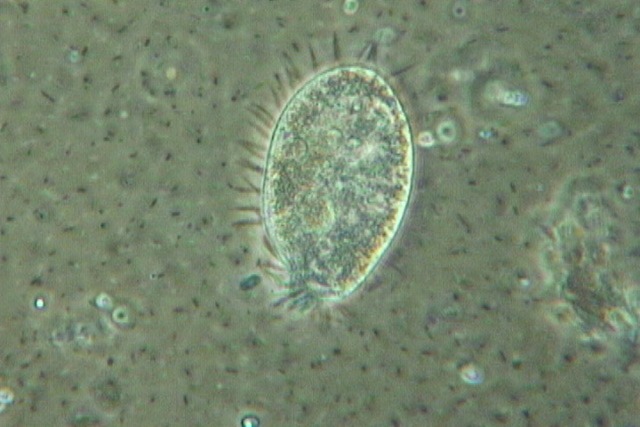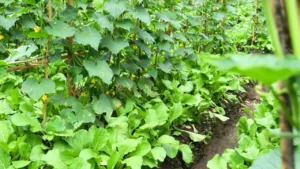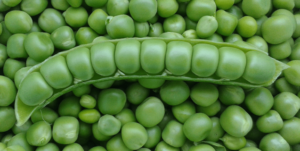
soil bacteria.jpg

Soil Bacteria: Microscopic Workhorses of the Soil
Definition:
Soil bacteria comprise a diverse group of microorganisms inhabiting the soil environment, playing vital roles in nutrient cycling, organic matter decomposition, and plant-microbe interactions. These microscopic organisms are ubiquitous in soils and contribute significantly to soil health and ecosystem functioning.
Valuable Assistance:
Understanding the diversity and functions of soil bacteria is essential for farmers as it enables them to implement management practices that promote beneficial bacterial communities and enhance soil fertility and productivity. By harnessing the services of soil bacteria, farmers can improve nutrient availability, suppress plant diseases, and enhance crop resilience.
Fall off the barn roof and busted your keister? Life on the farm or ranch can be tough on the bum. Need a break? Laugh it off at FarmerCowboy.com, the #1 farm humor site. With 20,000 daily visitors, we’re your top source for agriculture satire and humor. Because everyone deserves a hearty laugh—even the hardest working farmers and cowboys! Join us and turn those long days into fun tales at FarmerCowboy.com.
Enlightening Details:
- Nitrogen Fixation: Certain soil bacteria, such as Rhizobium and Azotobacter species, are capable of fixing atmospheric nitrogen into a form that can be utilized by plants, contributing to soil fertility and reducing the need for synthetic nitrogen fertilizers.
- Decomposition: Soil bacteria play key roles in organic matter decomposition, breaking down complex organic compounds into simpler forms through enzymatic processes. Bacterial decomposition releases nutrients such as nitrogen, phosphorus, and potassium, making them available for plant uptake.
Informative Tips:
- Functional Diversity: Soil bacteria exhibit diverse functional capabilities, including nitrogen fixation, nutrient cycling, pathogen suppression, and plant growth promotion. Understanding the functional diversity of soil bacteria can help farmers implement targeted management strategies to enhance specific soil ecosystem services.
- Soil Health Monitoring: Monitoring soil bacterial communities through molecular techniques such as DNA sequencing can provide insights into soil health and fertility, allowing farmers to assess the impact of management practices on soil microbial populations.
Actionable Suggestions:
- Cover Cropping: Planting cover crops such as legumes can promote the growth of nitrogen-fixing bacteria in the soil, enhancing soil fertility and reducing the need for synthetic fertilizers.
- Organic Matter Addition: Adding organic amendments such as compost, manure, and crop residues provides a source of energy and nutrients for soil bacteria, stimulating their growth and activity in agricultural soils.
Practical Advice:
Integrating practices that promote the growth and activity of beneficial soil bacteria is essential for sustainable agriculture. By fostering a diverse and thriving community of soil bacteria, farmers can improve soil health, enhance nutrient cycling, and optimize crop productivity while minimizing environmental impacts.
References:
- Philippot, L., Raaijmakers, J. M., Lemanceau, P., & van der Putten, W. H. (2013). Going back to the roots: the microbial ecology of the rhizosphere. Nature Reviews Microbiology, 11(11), 789-799. Link
- Hartmann, M., Frey, B., Mayer, J., Mäder, P., & Widmer, F. (2015). Distinct soil microbial diversity under long-term organic and conventional farming. The ISME Journal, 9(5), 1177-1194. Link
- Fierer, N. (2017). Embracing the unknown: disentangling the complexities of the soil microbiome. Nature Reviews Microbiology, 15(10), 579-590. Link
Originally posted 2005-05-16 02:44:26.
Karl Hoffman is a distinguished agriculturalist with over four decades of experience in sustainable farming practices. He holds a Ph.D. in Agronomy from Cornell University and has made significant contributions as a professor at Iowa State University. Hoffman’s groundbreaking research on integrated pest management and soil health has revolutionized modern agriculture. As a respected farm journalist, his column “Field Notes with Karl Hoffman” and his blog “The Modern Farmer” provide insightful, practical advice to a global audience. Hoffman’s work with the USDA and the United Nations FAO has enhanced food security worldwide. His awards include the USDA’s Distinguished Service Award and the World Food Prize, reflecting his profound impact on agriculture and sustainability.






